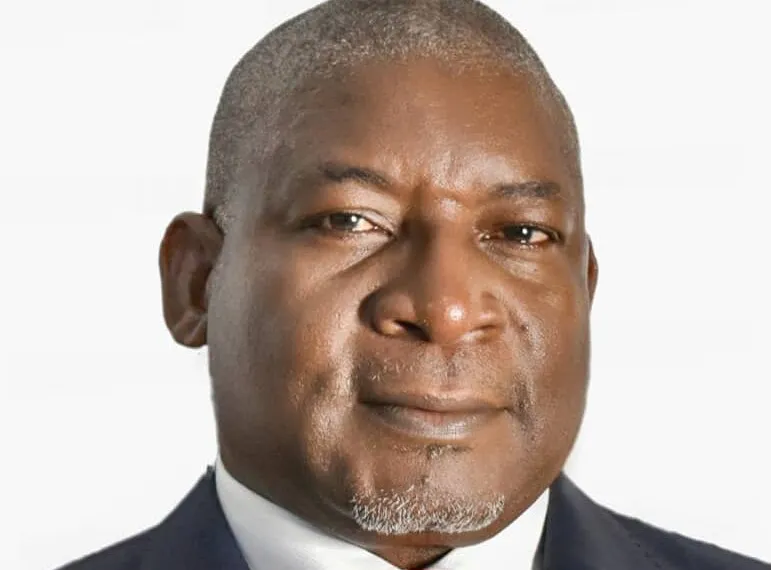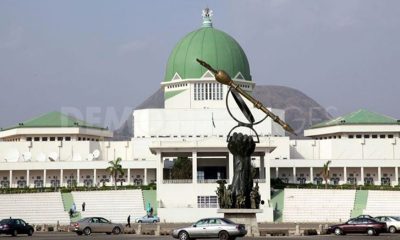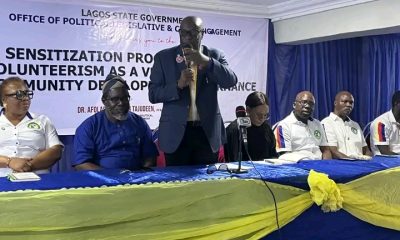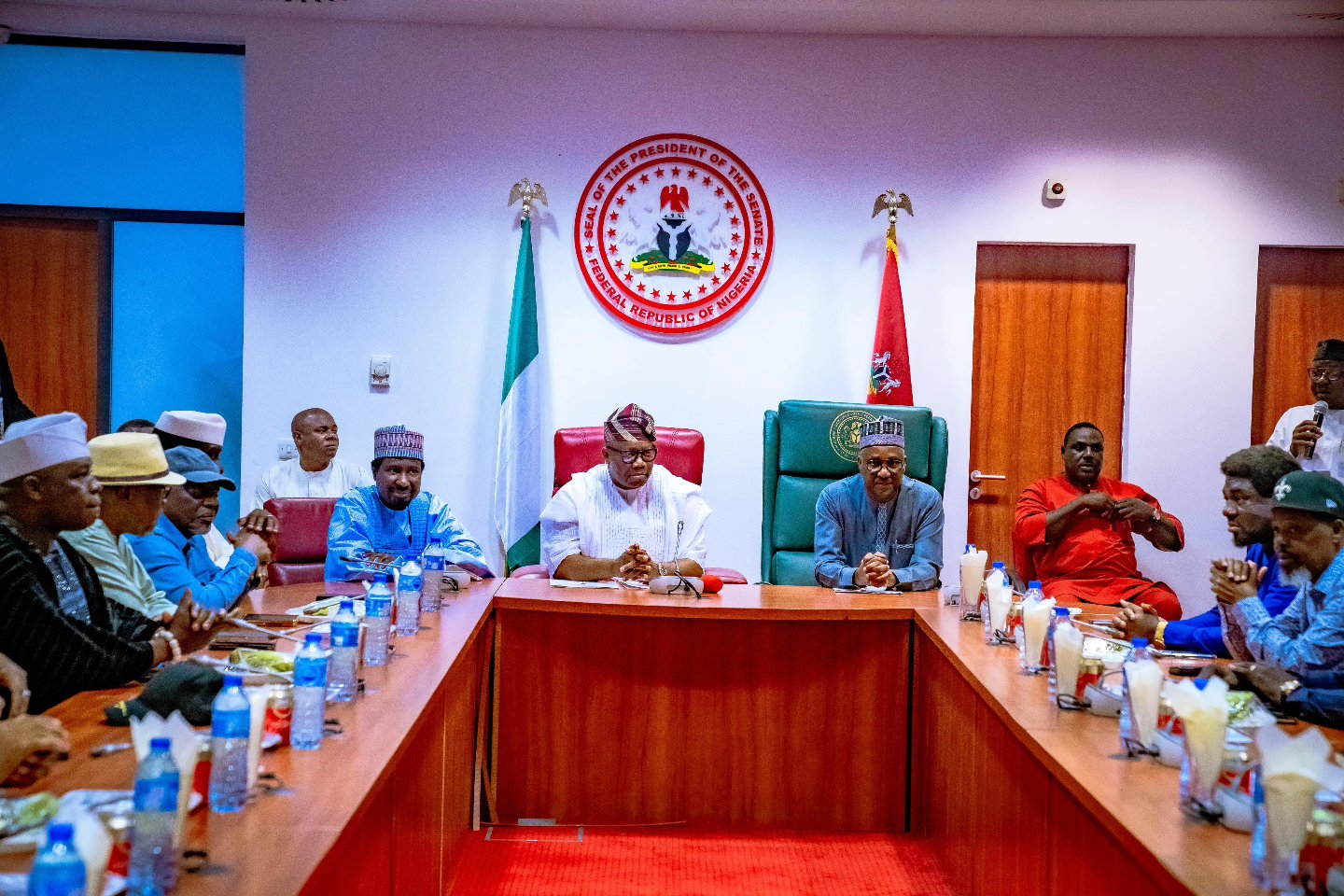News
Auditor-General Report Uncovers N197.72bn Irregular Payments Across MDAs

A report by the Auditor-General of the Federation has revealed irregular payments totaling over N197.72 billion across various ministries, departments, and agencies (MDAs), raising significant concerns about systemic lapses in financial compliance and procurement processes.
The findings, detailed in the Auditor-General’s Annual Report on Non-Compliance and Internal Control Weaknesses, cover activities from 2020 to 2021 and highlight violations of established financial regulations and procurement laws.
These irregularities have affected multiple MDAs and are expected to aid stakeholders, including the Public Accounts Committees of the National Assembly, in addressing these issues and recovering the lost funds.
One of the key findings involves irregularities in contract awards amounting to N7.39 billion, with violations occurring in 32 MDAs. These breaches contravene Paragraph 2921(i) of the Financial Regulations (2009), which mandates open competitive bidding for all procurement processes.
EDITOR’S PICKS
- Electricity Meter Costs Rise Again As Deregulation Takes Effect
- Biden, Harris Set To Congratulate Trump On Presidential Win
- Thousands Of ‘Trained’ Combatants Ready To Fight Israel – Hezbollah Chief
The Rural Electrification Agency in Abuja recorded the highest irregularity at N2.12 billion, while the Nigerian Security Printing and Minting Company Plc had the lowest at N11.72 million.

Auditor-General
The audit report stated: “The sum of N7,386,551,051.09 was the amount of irregularities in the award of contracts by 32 MDAs. The Rural Electrification Agency, Abuja, has the highest amount of N2,11
Another alarming revelation is the sum of N167.59 billion paid for contracts that were either partially executed or not executed at all, in violation of Paragraph 708 of the Financial Regulations, which prohibits such payments.
The Nigerian Bulk Electricity Trading Plc accounted for the largest portion of these irregular payments, totaling N100 billion. The National Centre for Women Development recorded the lowest irregularity at N2.17 million.
FURTHER READING
- Hezbollah Launches 120 Projectiles From Lebanon Into Israel
- Full List of Chief of Army Staff Who Died in Office
- ECOWAS Court Partners ICRC To Domesticate International Humanitarian Law
The report read: “The sum of N167,592,177,559.40 was the amount of payments for jobs/contracts not executed by 31 MDAs. The Nigerian Bulk Electricity Trading Plc, Abuja, has the highest amount of N100 billion, while the National Centre for Women Development has the least amount of N2,171,766.44.”
Further, violations of due process in contract awards amounting to N20.33 billion were uncovered across 24 MDAs. The audit found that these entities failed to adhere to procurement plans and obtain necessary approvals before awarding contracts, as required by Section 16(21) of the Public Procurement Act (PPA) 2007.
The Nigerian Security Printing and Minting Company had the highest amount of due process violations at N14.14 billion, while the Corporate Affairs Commission had the lowest at N8.98 million.
The report noted: “The sum of N20,334,104,016.27 was the amount of contracts awarded in violation of due process by 24 MDAs. The Nigerian Security Printing and Minting Company Plc, Abuja, has the highest amount of N14,136,472,333.16, while the Corporate Affairs Commission has the least amount of N8,980,603.72.”
Additionally, N2.41 billion was paid for contracts that exceeded approved financial thresholds without the required “Certificate of No Objection” from the Bureau of Public Procurement. This violation impacted five MDAs, with Ahmadu Bello University Teaching Hospital, Zaria, recording the highest irregularity at N1.06 billion, while the Federal Medical Centre, Bida, recorded the lowest at N9.9 million.
The report emphasized that these issues were “cross-cutting” and systemic, affecting at least four MDAs. It criticized weak internal controls and called for stricter enforcement of financial regulations. The Public Accounts Committees of the National Assembly have been informed of the findings, with recommendations to ensure accountability and prevent future violations.
These revelations have raised concerns about the government’s ability to effectively manage public funds, particularly amid Nigeria’s current economic challenges, such as inflation and rising debt. The findings underscore the urgent need for reforms to restore public confidence in the country’s financial management system.
Here is video of the week
Advertise or Publish a Story on EkoHot Blog:
Kindly contact us at [email protected]. Breaking stories should be sent to the above email and substantiated with pictorial evidence.
Citizen journalists will receive a token as data incentive.
Call or Whatsapp: 0803 561 7233, 0703 414 5611

















